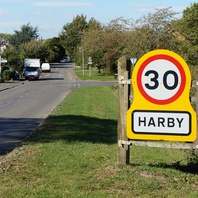
Viking Names
Harby
Harby, in the Framland Hundred of Leicestershire, contains the Old Norse element by ‘farmstead, village’. The first element has been a matter of discussion. The most recent scholarly opinion is that it is most likely from either Old English heorde ‘herdsman’, or Old Norse hjọrð ‘herd’, so either ‘farmstead or village of the herdsmen’ or ‘the herd farm’. For a village of the same name in Nottinghamshire it has also been suggested that the first element is the Old Norse male personal name Herrøðr, though this is now considered less likely.
Read More
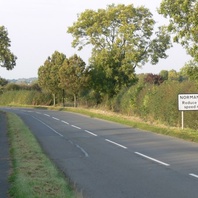
Viking Names
Normanton
Normanton, in the Framland Hundred of Leicestershire, takes its name from the Old English ethnonym Norðman ‘Northman, Norwegian’ and the Old English element tun ‘farm, settlement’. There are several places of this name, predominantly in the East Midlands: five in Nottinghamshire, and some in Derbyshire, Leicestershire, Lincolnshire and Rutland, and one in the West Riding of Yorkshire. The settlement lies in the Vale of Belvoir and previously had the affix in le Vale. Traditionally, the place-name has been interpreted as referring to a settlement of Norwegians (in an area where most of the Scandinavian settlers were Danes). However, the exact implications of such a name are not yet fully understood and are the subject of ongoing work by Dr Jayne Carroll of the Institute for Name-Studies, University of Nottingham.
Read More
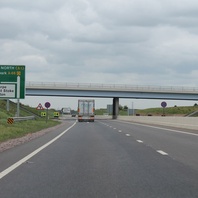
Viking Names
Elston
Elston, in the Newark Wapentake of Nottinghamshire, comes from the Old Norse male personal name Eiláfr or perhaps Eilífr and Old English tun ‘farm, settlement’. It is thus a hybrid name.
Read More
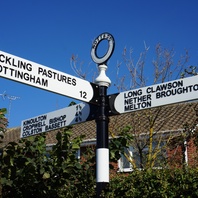
Viking Names
Hickling
Hickling, in the Bingham Wapentake of Nottinghamshire, has a name that was given probably quite early in Anglo-Saxon times in Old English. It is also recorded relatively early, first in a 14th-century copy of a document originally written around 1000. The -ing suffix indicates that the name refers to a group of people, who belonged to or were named after a person called Hicel(a). It is therefore not a Viking name. However, it is included here because St Luke’s Church in Hickling is the location of an early medieval grave-cover that is often regarded as a ‘hogback’ a type of Anglo-Scandinavian monument generally found further north (indeed this would be the most southerly example). It is quite common for sculpture with Scandinavian features or showing Scandinavian influence to be found in villages with English names, and this applies to other forms of material culture too. There is therefore no automatic connection between the name of a place and other evidence for Scandinavian influence, and this raises many interesting questions about the processes of acculturation, integration and diaspora that resulted from the Viking invasions.
Read More
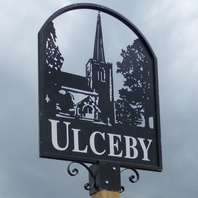
Viking Names
Ulceby
Ulceby, in the Yarborough Wapentake of Lincolnshire, is a Scandinavian compound from the Old Norse male personal name Ulfr and by ‘farm, settlement’. It is noteworthy that the first element has a Scandinavian genitive (a case that indicates relationships or ownership), as in the identical name Ulceby with Fordington and other place-names in Lincolnshire like Braceby, Haceby, Laceby, Rauceby and Winceby, and this survives today.
Read More
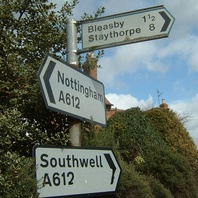
Viking Names
Bleasby
Bleasby, in the Thurgarton Wapentake of Nottinghamshire, was originally Blisetun, probably from the Old Norse male personal name Blesi and the Old English element tun ‘farm, settlement’. It was thus originally a hybrid name, like several others near it, such as Gonalston. By the thirteenth century, the second element had been replaced by Old Norse by ‘farm, settlement’.
Read More
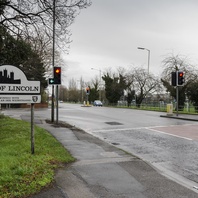
Viking Names
Lincoln
Lincoln is one of the Five Boroughs of the Danelaw. The original name is derived from pre-English lindo, pre-Welsh linn ‘a pool’, which likely refers to the broad pool in the River Witham, now known as Brayford. The pre-English form of Latin colonia was added after the establishment here of a settlement of legionaries in succession to the earlier fortress.
Read More
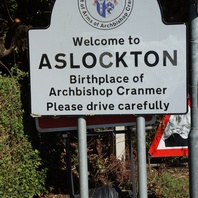
Viking Names
Aslockton
Aslockton, in the Bingham Wapentake of Nottinghamshire, comes from the Old Norse male personal name Áslákr and the Old English element tun ‘farm, settlement’. It is thus a hybrid name like others nearby, such as Thoroton and Colston Bassett.
Read More
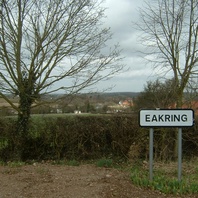
Viking Names
Eakring
Eakring, in the Bassetlaw Wapentake of Nottinghamshire, comes from the Old Norse elements eik ‘oak’ and hringr ‘ring’ and must have been named after a circle of oak trees.
Read More
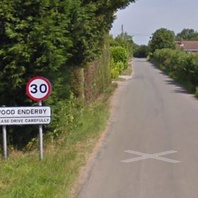
Viking Names
Wood Enderby
The name Enderby probably comes from the Old Norse male personal name Eindriði and the Old Norse element by ‘farm, settlement’. ‘Wood’ was added later to distinguish this part of the settlement from Bag Enderby and Mavis Enderby.
Read More
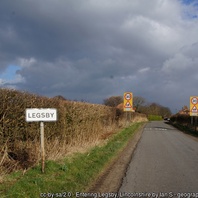
Viking Names
Legsby
Legsby, in the South Riding of Lindsey of Lincolnshire, comes from the Old Norse male personal name Leggr and the Old Norse element by ‘farmstead, village’. The boundary between Legsby and Linwood was recorded as Leggeshou/ Legeshou/ Leggeshow ‘Legg’s mound, burial mound’ presumably named from the same man and Old Norse haugr ‘hill, mound, a burial mound’.
